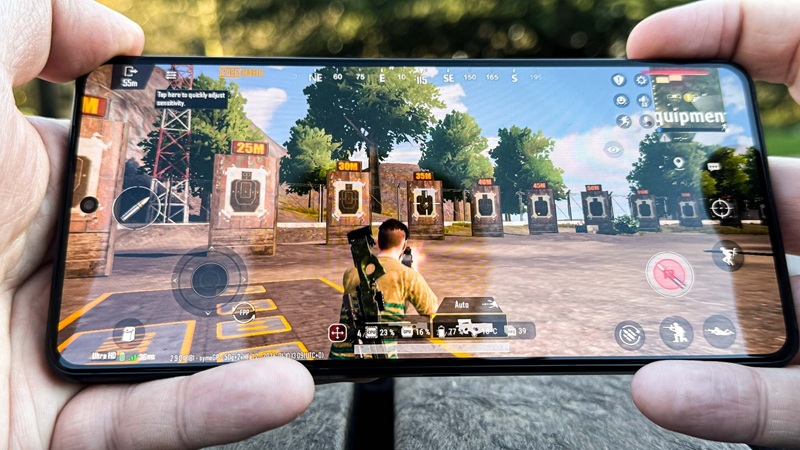5 ways to speed up Android devices when playing games

What is Android Device Speed Up?
Android Device Speed Up refers to methods and techniques used to enhance the performance and responsiveness of Android devices, particularly when they become sluggish over time. This can involve various strategies, such as clearing cached data, uninstalling unused apps, or disabling animations. Additionally, keeping the device’s software updated, managing background processes, and using lightweight apps instead of resource-heavy ones can help improve speed. Some users also utilize third-party apps designed to optimize system performance. Regular maintenance not only speeds up the device but also enhances its overall efficiency and battery life, ensuring a smoother user experience.
Why Is My Android Phone Slow?
Android devices may experience lag for several reasons, typically related to hardware limitations, software issues, or user habits. Here are common causes:
1. Insufficient RAM:
Running multiple apps simultaneously can exceed the device’s available RAM, leading to sluggish performance. This is particularly common in devices with low RAM capacity.
2. Backlogged Storage:
A nearly full storage space can cause delays as the system struggles to manage app data and cached files efficiently.
3. Resource-Intensive Apps:
Applications that are resource-heavy, such as games with high graphics demands or large social media platforms, can consume significant amounts of CPU and RAM, causing the device to slow down.
4. Outdated Software:
Using outdated operating system versions or apps can result in compatibility issues and unoptimized performance, contributing to lag.
5. Background Processes:
Background apps and services like auto-syncs, notifications, or widget updates can drain resources, leading to decreased performance.
6. Overheating:
Excessive device temperature can throttle CPU performance to prevent damage, resulting in noticeable lag.
7. Malware or Bloatware:
Unwanted software, including malware or pre-installed apps, can use up system resources unnecessarily.
Regular maintenance, such as clearing cache, managing apps, and keeping software updated, can mitigate these issues, ensuring smoother performance and a better user experience.
5 ways to speed up Android devices when playing games
Playing games on an Android device can be incredibly satisfying, but it can also be frustrating when lag or slow performance interrupts the experience. Here are five effective ways to speed up your Android device when playing games:
1. Optimize Graphics Settings:
– Many games allow you to adjust graphics settings to balance visual quality and performance. Lowering graphics quality, reducing texture detail, or disabling high-resolution rendering can free up resources and improve frame rates.
– Use game mode or performance settings provided by the device’s operating system or the game itself. Many Android devices have a “Game Mode” that optimizes the CPU and RAM allocation for smoother gameplay.
2. Clear Cached Data and Unnecessary Files:
– Cached data and irrelevant files can accumulate over time, consuming valuable storage space and slowing down the device. Regularly clearing cache files can free up storage and enhance device speed.
– Use built-in storage management options or third-party cleaning apps to delete junk files. This also helps in reducing overheating, as the processor works less hard to access necessary data during gameplay.
3. Close Background Apps and Services:
– Background processes utilize system resources, slowing down the device. Before starting your gaming session, close all unnecessary apps running in the background to free up RAM and CPU resources.
– Use the task manager or recent apps menu to verify which apps are running. Some Android versions allow you to put apps into a hibernation mode when they’re not in use, saving resources for active tasks.
4. Update Software and Apps:
– Keeping your Android operating system and games updated ensures optimal performance. Software updates often include performance enhancements, bug fixes, and new features that can improve gaming experiences.
– Enable automatic updates or periodically check for updates in the Google Play Store. Ensuring that your games are at their latest version can also resolve issues related to compatibility and efficiency.
5. Use a Game Booster App:
– Game booster apps can optimize system performance specifically for gaming by automatically managing resources. They may disable unnecessary background processes, allocate more RAM to games, and optimize CPU performance.
– Many game boosters also offer additional features like screen recording, blocking notifications during gameplay, and displaying performance metrics. Popular options include Game Booster, Game Mode, and other manufacturer-specific apps that may come pre-installed on your device.
Bonus Tips:
– Cooling Down the Device:
Excessive heat can lead to CPU throttling, reducing performance. Remove your phone case while gaming to help dissipate heat, and avoid prolonged sessions without breaks.
– Disable Animations: Reducing or disabling system animations can make your device feel snappier. Access developer options by tapping “Build number” repeatedly in your device settings and adjust animation scales.
Implementing these strategies can provide a noticeable boost in gaming performance on Android devices. Regular maintenance and mindful usage not only enhance gaming experiences but also improve the overall functionality and longevity of the device. Enjoy smoother, more immersive gameplay by optimizing your device for maximum performance.